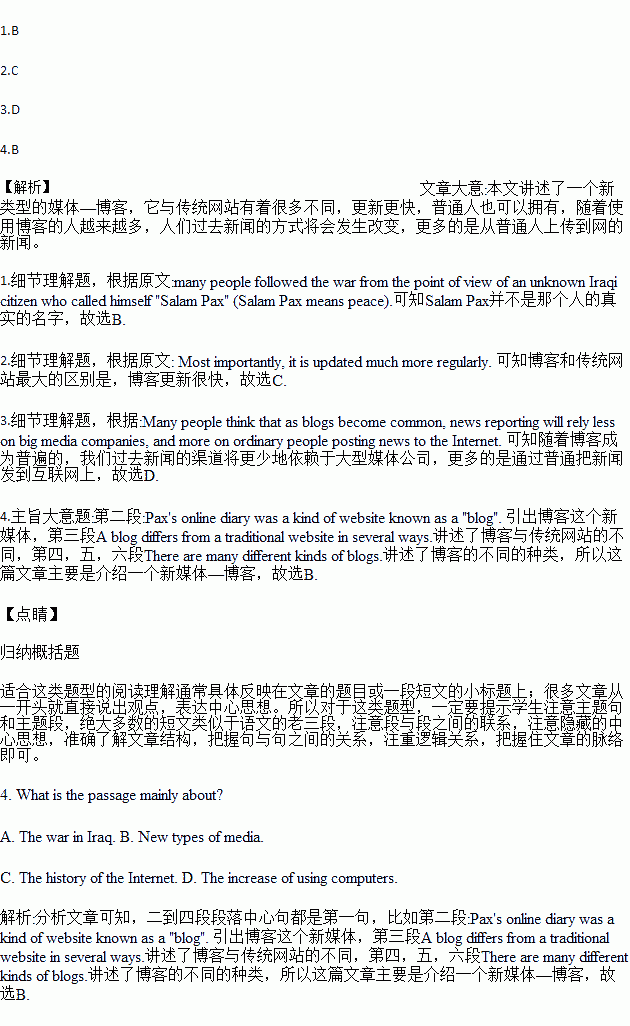题目内容
When important events are happening around the world, most people turn to traditional media sources, such as CNN and BBC for the news. However, during the war in Iraq in 2003, many people followed the war from the point of view of an unknown Iraqi citizen who called himself "Salam Pax" (Salam Pax means peace).
Salam Pax wrote a diary about everyday life in Baghdad during the war, and posted it on his website. Pax's online diary was a kind of website known as a "blog". Blogs are online diaries, usually kept by individuals, but sometimes by companies and other groups of people. They are the fastest growing types of website on the Internet.
A blog differs from a traditional website in several ways. Most importantly, it is updated much more regularly. Many blogs are updated every day, and some are updated several times a day. Also, most blogs use special software or websites, which can help ordinary people easily set up and start writing their own blogs.
There are many different kinds of blogs. The most popular type is an online diary of links where the blog writer surfs the Internet and then posts links to sites or news articles that they find interesting, with a few comments about each one. Other types are personal diaries, where the writer talks about their life and feelings. Sometimes these blogs can be very personal.
There is another kind of blogging, called "moblogging", short for "mobile blogging".
Mobloggers use mobile phones with cameras to take photos, which are posted instantly to the Internet. The use of mobile phones in this way made the headlines in Singapore when a high school student posted a movie he had taken of a teacher shouting at another student on the Internet. Many people were shocked by what the student did, and wanted phones with cameras to be banned from schools.
Many people think that as blogs become common, news reporting will rely less on big media companies, and more on ordinary people posting news to the Internet. They think that then the news will be less like a lecture, and more like a conversation, where anyone can join in.
1.Which statement about Salam Pax was true?
A. He worked for CNN.
B. Salam Pax was not his real name.
C. He was famous as a host in BBC.
D. He used a mobile phone for his blog.
2.What is the biggest difference between blogs and traditional websites?
A. Blogs use special software.
B. Blogs contain personal information.
C. Blogs are updated much more often.
D. Blogs contain links to other websites.
3.According to the passage, in the future it is likely that ________.
A. everyone will have a blog
B. blogging technology will be banned
C. large media companies will be unnecessary
D. people will be able to learn the news from other points of view
4.What is the passage mainly about?
A. The war in Iraq. B. New types of media.
C. The history of the Internet. D. The increase of using computers.


 B.
B. 
 D.
D. 